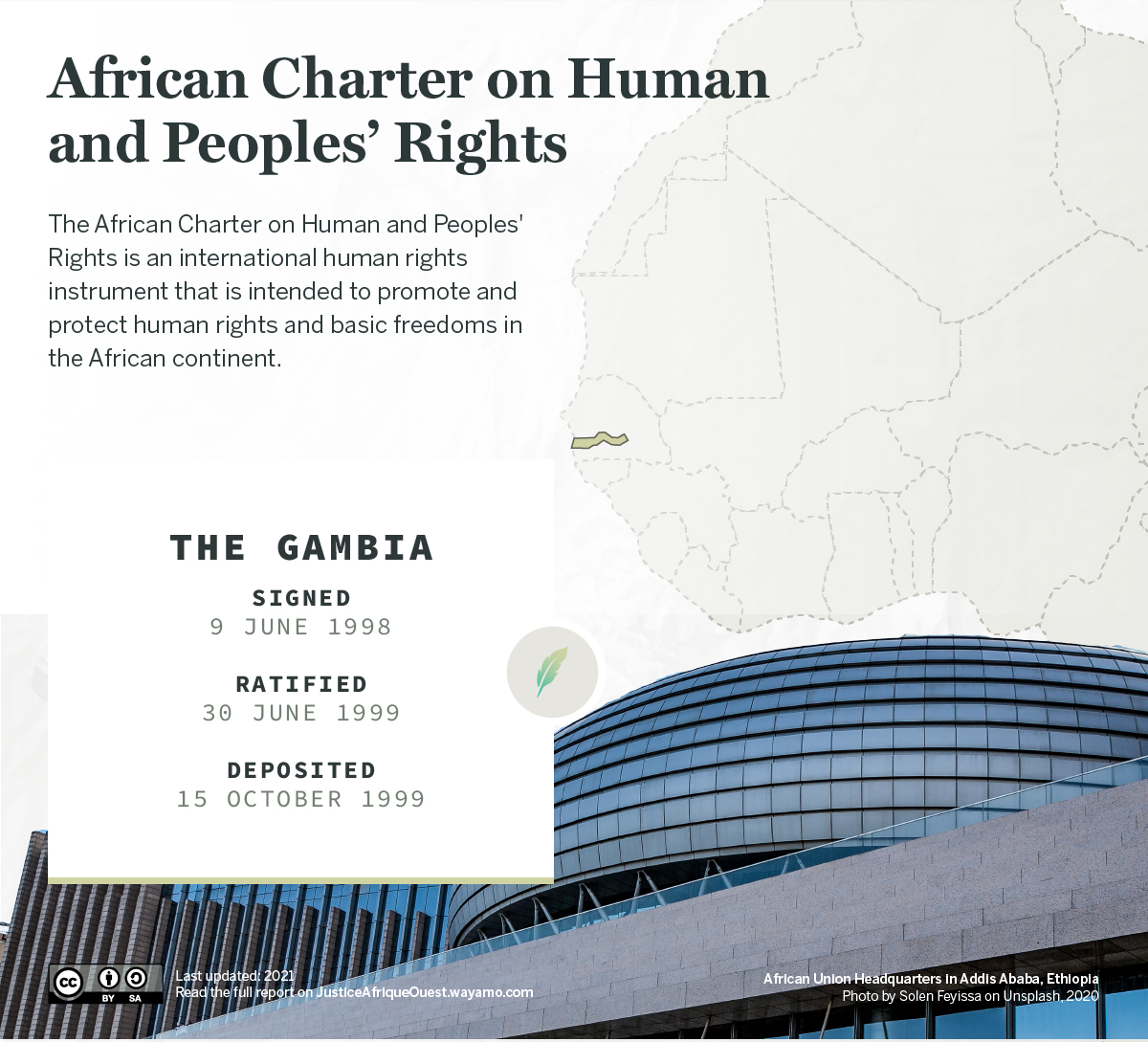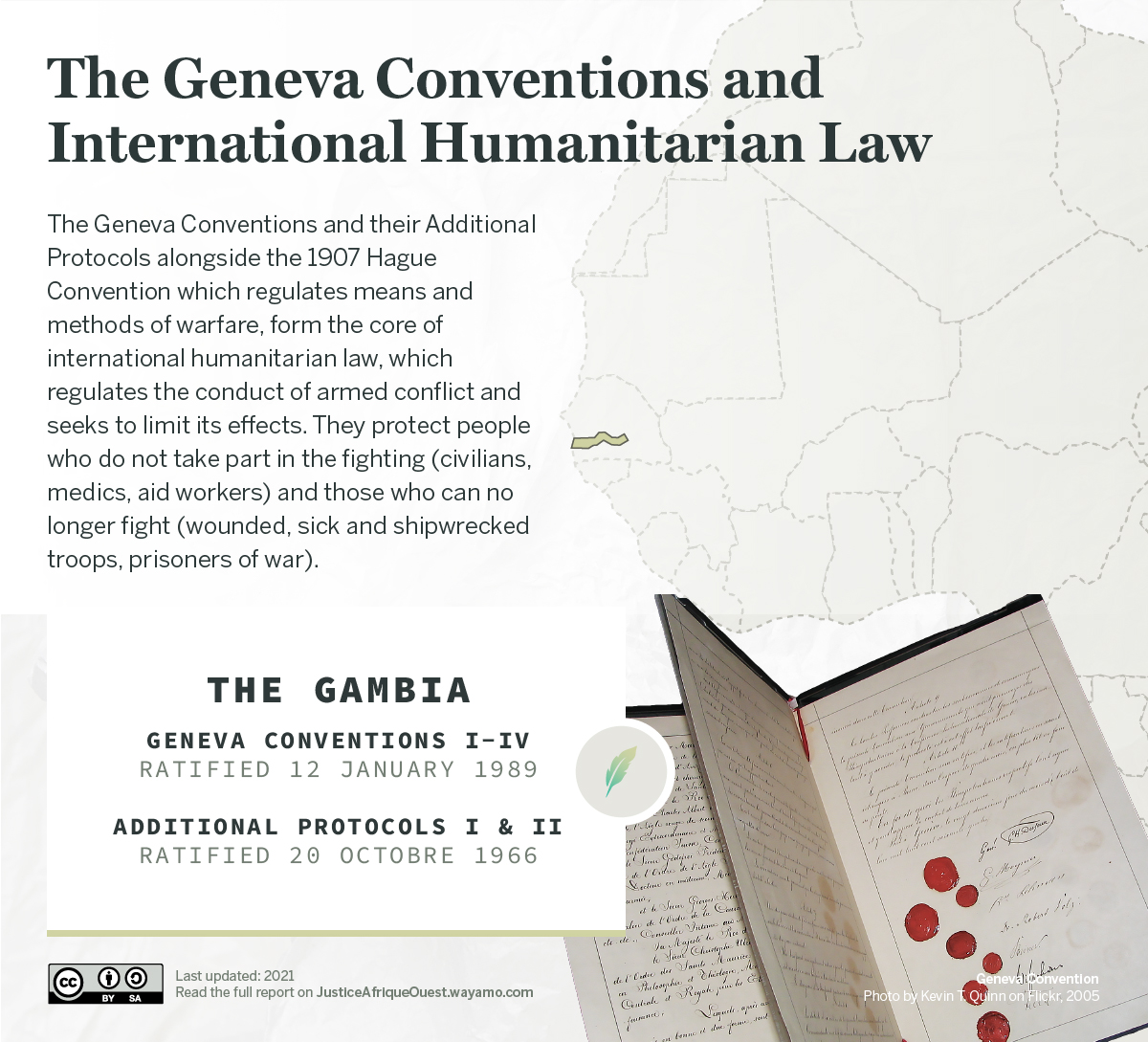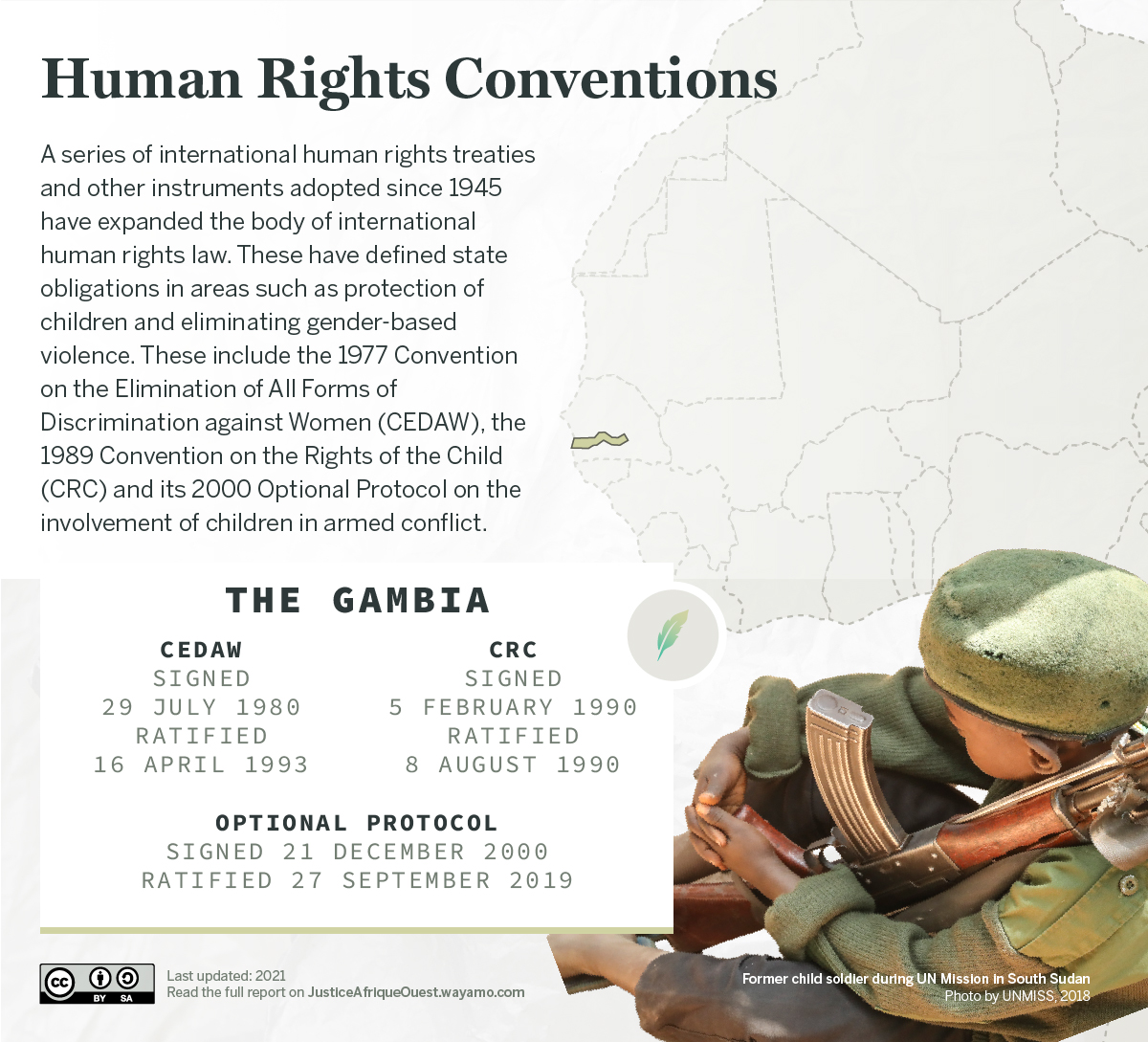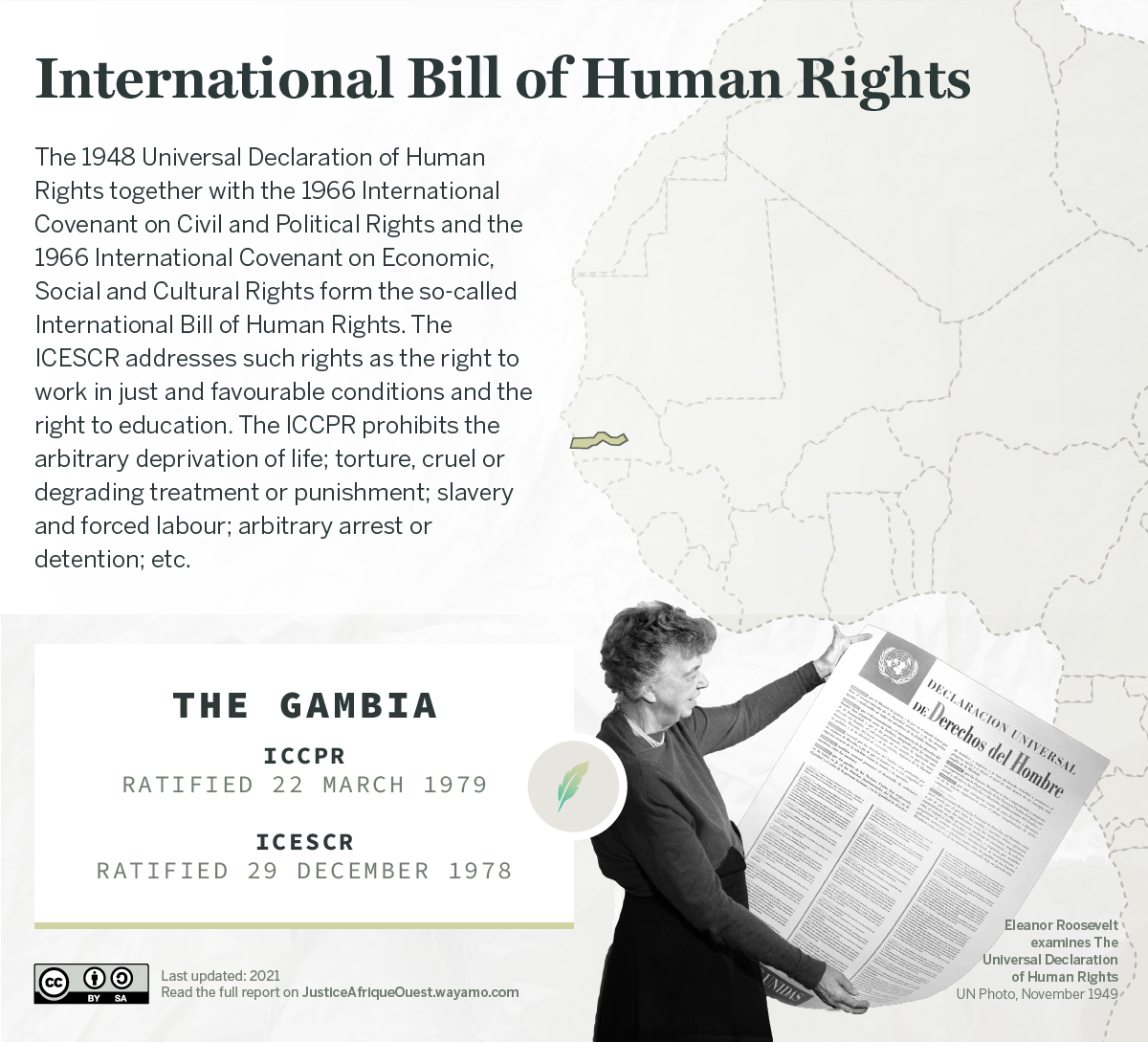President Dawda Jawara loses power in a bloodless coup
Yahya Jammeh, a 29-year-old officer in the National Army charged with commanding the Military Police, leads a bloodless coup against Jawara who served as Prime Minister from 1962 to 1970, and then as the first President of the Gambia from 1970 to 1994. Jammeh instals himself as de facto national leader in the role of chairman of the Armed Forces Provisional Ruling Council.
Yahya Jammeh elected president of the Gambia
Over the next twenty-one years, his rule would become increasingly authoritarian and characterised by grave human rights abuses.
Massacre of African migrants
Gambia security forces arrest migrants bound for Europe after their boat lands in the Gambia, on suspicion of involvement in a coup attempt. Over the next 10 days, almost all including about 44 Ghanaians, 9 Nigerians, 2 Togolese, and nationals of Cote d’Ivoire and Senegal, plus 1 Gambian, are killed in Gambia or taken across the border into Senegal and shot and their bodies dumped in wells.
UN & ECOWAS investigate murder of African migrants
The United Nations and the Economic Community of West African States (ECOWAS) complete a joint investigate team report into the alleged massacre of 52 African migrants by security forces in the Gambia. The report concludes that “rogue” elements of the security services “acted on their own”. The full report was never made public.
Ghana and the Gambia sign a Memorandum of Understanding
Ghana and the Gambia sign a pledge to use “all available means” to prosecute those responsible for the death of the African migrants. No arrests were ever made. The memorandum states that the Gambian government was not complicit in the deaths, but would pay compensation to the families. Each of the 27 families received approximately USD 6,800. Only six bodies were returned.
Yahya Jammeh loses presidential election to Adama Barrow
The victory is secured thanks, in large part, to civil society and youth-led activism.
Jammeh announces intentions to reject the outcome of the election
Citing "serious and unacceptable abnormalities” Jammeh turns to the Supreme Court, an institution he considered under control, to affirm the allegations. The following day Jammeh deploys the military throughout the capital region and occupied the election commission. Attempts by ECOWAS and the AU to negotiate a resolution fail.
Adama Barrow sworn in as president
Ousman Sonko investigated under Universal Jurisdiction
Former Gambian Minister of Interior, Ousman Sonko is arrested in Switzerland and an investigation is opened. He is currently in pre-trial custody.
NIA9 case opens and Justice Minister commits to no more trials until capacity improved
The first case involving alleged crimes of Jammeh’s associates is opened against nine former National Intelligence Agency (NIA) agents accused of involvement in the killing of Solo Sandeng, a political activist who died in detention in April 2016. Despite some progress, the case has moved slowly and is stalled by delay tactics from the defense. Justice Minister Tambadou criticises the police for arresting the accused Junglers, saying this forced a rushed an investigation and trial process. Tambadou declares that “no new criminal cases involving crimes allegedly committed by the former government will be handled” until the capacity of the justice sector is strengthened.
Janneh Commission established
The Commission of Inquiry into the Financial Activities of Public Bodies, Enterprises and Offices, known as the Janneh Commission, is established as a first step in an effort to recover ill-gained assets from members of the former regime and its business partners. The commission released its report March 2019, accompanied by a government ‘whitepaper’ outlining an intended policy of enacting the report’s recommendations.
National truth commission established
The Truth Reconciliation and Reparation Commission Act is passed by the National Assembly. The Act places responsibility on the TRRC to identify and investigate those most responsible for the crime of the Jammeh regime, and to recommend those individuals for amnesty or prosecution.
Civil society calls for Jammeh to face trial in Ghana
A coalition of national and international civil society actors known as Jammeh2Justice see some progress towards the goal of securing an extradition of Jammeh to Ghana to face trial for the murder of 52 African migrants, the majority of them from Ghana. In May 2018, the Ghanaian Ministry of Foreign Affairs and the Attorney-General’s Department commit to studying the legal and diplomatic implications of a possible case.
Four members of Jammeh’s elite security unit released
Four of suspected “Junglers” released from detention without facing charges. The army chief who detained them claims "extensive interrogations" reveal no evidence tying them to wrongdoing.
Charges against NIA officials withdrawn
The Ministry of Justice announced the withdrawal of charges against several officials from the NIA, who had been accused of participating burying political activist Solo Sandeng.
Former prison director released
David Colley, the former Director of the Mile 2 prison charged with murder of Baba Jobe and abuse of office in March 2018, is released after a brief time in detention. Later, in July 2020, he testified for three days before the TRRC.
Solider accused of murdering colleague released
TRRC holds first public hearings
Investigation into 2018 protest deaths ends
President Barrow announces that he will discontinue the prosecution of police officers responsible for the death of demonstrators in the village of Faraba Banta in June 2018.
"Junglers" testify at the TRRC
Members of elite unit confess to acts of murder, torture and other grave wrongdoing. Following testimony, Pa Ousman Sanneh, Malick Jatta, Omar Jallow and Amadou Bargie are released from prison. Two other "Junglers" remain in prison after the Minister of Justice deems their testimony to the TRRC untruthful.
National Assembly rejects New Constitution
Members of President Barrow’s political party are instrumental in turning down new constitution. Among its new provisions, the rejected draft constitution included presidential term limits.
"Jungler" faces torture charges in the United States
United States indicts Michael Sang Correa under an anti-torture ‘federal extraterritorial jurisdiction’ law granting US courts authority to try public officials accused of torture, regardless of where the acts were committed or the nationality of those involved. The US District Court of Colorado alleges that Correa is responsible for the torture of at least six people in 2006.
Projected date for the release of the TRRC's final report








